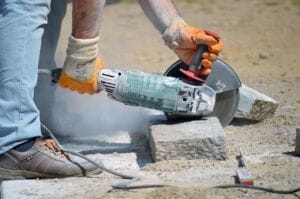Remodelling a kitchen is one of the most transformative updates you can make to your home. It enhances day-to-day living, elevates property value, and breathes new life into an often-overlooked space. But before diving into designs and demo days, there are a few essential things every Toronto homeowner should know to avoid delays, budget overruns, or unexpected red tape.
Whether you’re modernizing a downtown condo or refreshing a family kitchen in the suburbs, these ten considerations will help you plan confidently—and avoid common pitfalls. For anyone exploring options for kitchen remodeling in Toronto, this guide covers the must-knows before the first tile is lifted.
1. Know Your End Goal
Before choosing a backsplash or browsing cabinet styles, determine what you’re trying to achieve with your remodel. Are you aiming for more functionality, improved resale value, or a complete lifestyle upgrade? Clarifying your primary objective will guide your choices in layout, materials, and investment levels. It will also help you communicate clearly with your contractor or designer.
2. Permits Are Often Required—Even for Cosmetic Work
In Toronto, many kitchen renovation projects require building permits—especially if you’re relocating plumbing, electrical, or knocking down walls. Don’t assume that “cosmetic-only” upgrades are exempt. According to the City of Toronto’s building permit regulations, even replacing drywall may require approval if it affects insulation or fire safety. Be sure to consult with a professional or check the city’s permit guidelines.
3. Not All Materials Perform Equally in Canadian Climates
Toronto’s fluctuating seasons mean you’ll want materials that can handle both dry winters and humid summers. Engineered hardwood often performs better than solid wood in kitchen spaces due to moisture resistance. Similarly, quartz countertops offer durability that stands up to temperature changes, making them a smart investment for local conditions.
4. Your Layout Dictates Your Workflow
The “kitchen triangle” concept—strategically placing the sink, stove, and refrigerator—still holds value. But in modern kitchens, the focus is shifting toward zones. Think food prep areas, baking stations, and tech charging drawers. Before finalizing a layout, consider how you actually use your kitchen and ensure the space flows with your routines.
5. Appliances Should Be Chosen Early
Many homeowners leave appliance selection until late in the process, only to find that their cabinetry doesn’t accommodate that oversized fridge or built-in microwave. Choose appliances before finalizing cabinetry measurements, especially if you’re going with built-in or custom options. It saves time, money, and frustration down the road.
6. Budgets Need Breathing Room
It’s tempting to map out your dream kitchen with a tight budget, but surprises are inevitable—especially in older Toronto homes. Always add a contingency buffer of at least 15% to your estimated budget. This ensures you’re financially prepared for issues like outdated wiring, hidden water damage, or last-minute design tweaks.
7. Lighting Is More Than an Afterthought
Good lighting elevates a kitchen from functional to fabulous. A layered approach—including ambient, task, and accent lighting—can make all the difference. Under-cabinet lighting, pendant fixtures over islands, and even toe-kick lighting for night visibility should be part of your early design planning.
8. Sustainable Choices Are Smart Long-Term
Green design isn’t just a trend—it’s a practical approach to building a more efficient home. Opt for energy-efficient appliances, LED lighting, and low-VOC paints and adhesives. Not only do these choices reduce your environmental footprint, but they also lower your utility bills and appeal to eco-conscious buyers if you ever sell.
9. Open-Concept Isn’t Always Ideal
While open-concept kitchens are highly desirable, they’re not always the best solution for every home. Sound can travel, storage may be reduced, and defining living zones can be a challenge. If you’re considering tearing down walls, weigh the pros and cons carefully, especially in heritage homes or semi-detached Toronto properties where structural work can be complex.
10. Choose Your Team Wisely
The success of your remodel hinges on the professionals you work with. Seek out licensed, insured contractors who understand local building codes and have experience with similar-sized projects. Ask for references, view portfolios, and ensure their communication style aligns with yours. A reliable team can make all the difference between a stressful experience and a rewarding transformation.
Making the Most of Your Kitchen Renovation
A kitchen remodel is an exciting opportunity—but it’s also a significant investment of time, money, and energy. Planning ahead, knowing what to expect, and working with experienced professionals ensures you’ll enjoy the process and love the results. With the right approach, your new kitchen won’t just be beautiful—it’ll be built to last in the heart of Toronto living.



